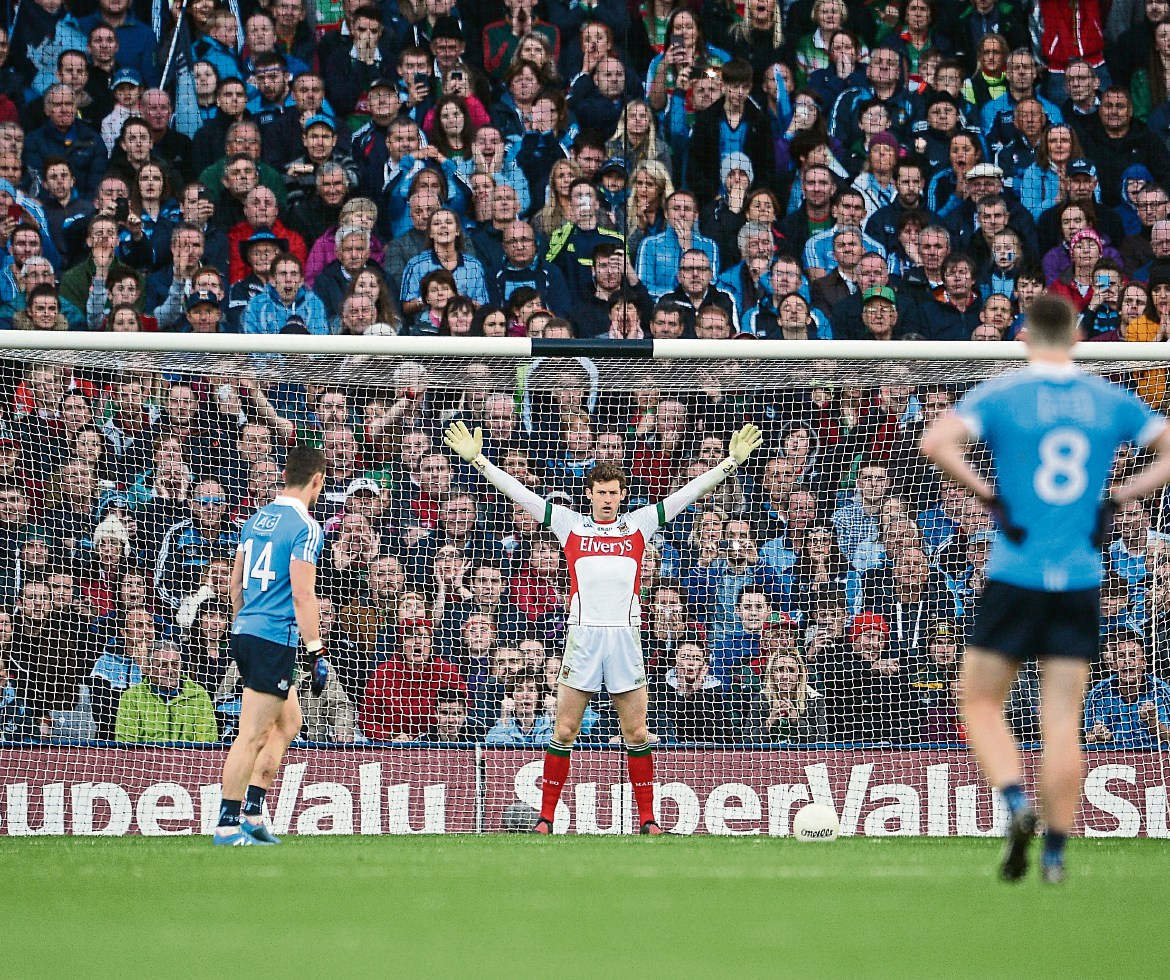WE all love a good penalty shootout. Even the world’s most boring game, coupled with an even more boring period of extra time, can become instantly memorable once penalties come into the mix. When I say that we all love when a game goes to penalties, I’m talking about the other football. Soccer.
We don’t seem to have the same grá for the concept of penalties in Gaelic games. We’re not used to them. We also weren’t used to helmets until they became mandatory a mere 12 years ago.
The smart players and coaches accept that penalty shootouts may be what wins them a title and learns a bit more about how to execute them, rather than waste time and energy complaining about something that now will be implemented.
We love penalties in sport psychology world. High-pressure, high-stakes, one on one. Here are some tips to ensure you and your team are fully prepared before you attempt that Panenka.
- Penalties are not a lottery. They are not completely down to chance or luck. That kind of attitude means that players accept there’s nothing they can do to prepare for the pressure of a shootout. It’s a different pressure to a penalty kick during a game. That player has probably practised them. In a shootout, many more are going to have to make that long lonely walk to face off with the opposition’s goalkeeper.
- Research shows that the team who starts first are more likely to win. If you win the coin toss, shoot first. The theory is that the team that goes second feels more pressure, especially if the first has gone in. It increases tension in their body, which means their kicking execution won’t be as fluid as it could. The fear of losing can paralyse us at times and can alter our decision-making. This is why players who have practiced kicking to one side may go to another at the last minute. The pressure scrambled their rational and clear thinking.
- Don’t spend too long looking at the goalkeeper. It can increase the risk of your mind fixating on the ‘keeper instead of the task you have to do.
- Take your time. That one extra second to gather your breathing and thoughts before you take off has been proven to help you score. Your mother used to give out to you when you gave the kitchen a quick once over, leaving crumbs on the table or dishes in the sink, so you could go out and play. The same is true of sport. A rushed job is never as tidy or as good as it should be.
- Pick a spot and commit to it. Don’t deviate. Otherwise you are inviting uncertainty and poor technique to the party.
- Goalkeepers should also be preparing for penalty shootouts. Yes, you practice penalties all the time, but you need to start preparing for this new scenario in Gaelic games. You’re used to facing one, not multiples of that one after the other, alternating your goalmouth with the opposite number one.
- It can be daunting trying to figure out where to stand and how much movement you should make. While every goalkeeper will have their own theories and knacks, a lot of the research points to ‘keepers staying still as a significant percentage of kickers will go down the middle, yet ‘keepers often commit to a side too early. This is thought to be due to our unconscious brains who’d rather we looked like we were busy and diving while missing the kick, rather than standing still and potentially letting the ball into the net regardless. Unfortunately, you can’t do this for every penalty you’ll face, as those pesky footballers will have figured you out. Knowing the above data should help your preparation.
- You are in a unique position to faze your opponent. Make eye contact. Rattle them. Take your time getting into the goalmouth. The longer you make the penalty taker wait, the likelier they’ll miss. So get confident at ignoring a crowd and opposition screaming at you to hurry up.
- You’ll probably have done your homework on the kicker. And know where they are most likely to kick the ball. They’ll have done the same. It becomes a battle of minds. Who is more capable of staying calm and concentrated? It’s a long walk for the penalty taker to the spot. Don’t get involved in the kick until they are ready to go to keep your mind as fresh as possible and your body primed for action.
Finally, if you take only one thing from this article, it’s that these things aren’t down to chance. Nobody assumes winning a throw-in is down to luck, or winning frees down to lucky breaks. Prepare for these. After all, nobody wants to become known as the England of Gaelic games!
Receive quality journalism wherever you are, on any device. Keep up to date from the comfort of your own home with a digital subscription.
Any time | Any place | Anywhere












